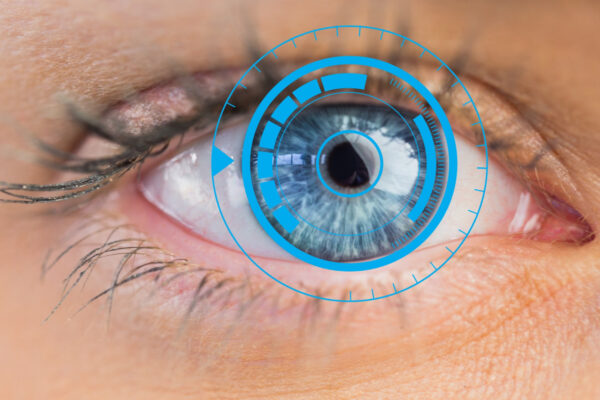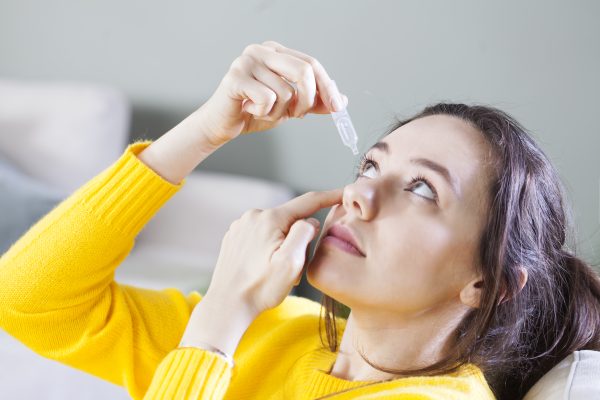Vision problems in the U.S. are steadily becoming a serious issue. Data suggests that as many as 21 million Americans have vision problems, and 80 million Americans have eye diseases that could potentially be blinding. As vision loss becomes more and more common, it is important to take stock of what you can do as part of your eye care routine to prevent vision loss and eye disease. The good news is that there are numerous foods you can incorporate into your diet that can help maintain eye health throughout the years.
Maintaining eye health is essential for overall well-being, and nutrition plays a pivotal role in preserving vision and preventing ocular diseases. Incorporating specific nutrient-rich foods into your diet can significantly contribute to eye health. Below, we explore various foods and their beneficial components that support optimal vision.
- Fatty Fish

Fatty fish such as salmon, mackerel, tuna, and sardines are rich in omega-3 fatty acids, particularly DHA and EPA. These essential fats are integral to retinal health and have been associated with a reduced risk of dry eye syndrome and age-related macular degeneration (AMD).
2. Leafy Green Vegetables

Vegetables like spinach, kale, and collard greens are abundant in lutein and zeaxanthin, carotenoids that accumulate in the retina and act as protective antioxidants. Regular consumption of these greens has been linked to a decreased risk of cataracts and AMD.
3. Carrots and Sweet Potatoes

Carrots and sweet potatoes are excellent sources of beta-carotene, a precursor to vitamin A. Vitamin A is crucial for maintaining the cornea and supporting low-light vision. A deficiency can lead to night blindness and other visual impairments.
4. Citrus Fruits

Oranges, grapefruits, lemons, and limes are high in vitamin C, a potent antioxidant that combats oxidative stress in the eyes. Adequate vitamin C intake supports the health of blood vessels in the eyes and may reduce the risk of cataracts.
5. Nuts and Seeds

Almonds, walnuts, chia seeds, and flaxseeds provide vitamin E and omega-3 fatty acids. Vitamin E protects eye cells from oxidative damage, while omega-3s contribute to retinal function and may alleviate dry eyes.
6. Eggs

Egg yolks contain lutein, zeaxanthin, vitamin A, and zinc. This combination supports retinal health, enhances night vision, and protects against AMD.
7. Legumes

Beans, lentils, and chickpeas are good sources of zinc, a mineral essential for maintaining the health of the retina and may help delay AMD progression.
8. Whole Grains

Whole grains like quinoa, brown rice, and whole wheat bread have a low glycemic index, which helps regulate blood sugar levels. Maintaining stable blood sugar is important for reducing the risk of diabetic retinopathy.
9. Colorful Bell Peppers

Bell peppers, especially red ones, are rich in vitamins A and C. These antioxidants support the health of blood vessels in the eyes and may reduce the risk of cataract.
10. Broccoli and Brussels Sprouts

These cruciferous vegetables provide a combination of vitamin A (as beta-carotene), vitamin C, and vitamin E. This trio of antioxidants helps protect eye cells from free radicals.
Water & Eye Health
While not a food item per se, remaining hydrated is just as important for your eye health. Our bodies lose water through sweat, breathing, urine and bowel movements therefore it is imperative we replenish the body’s water supply.
The U.S. National Academies of Sciences, Engineering, and Medicine determined that an adequate daily fluid intake is:
- About 15.5 cups (3.7 liters) of fluids a day for men
- About 11.5 cups (2.7 liters) of fluids a day for women
While this may seem like a lot, keep in mind that fluids can come from fruits and vegetables such as watermelon and spinach, as well as yes drinks such as coffee, teas, sodas, etc.
However, if you feel that drinking plain water is hard, and you would like to keep things healthy without adding additives, coloring, sugar to your diet, or extra calories, then consider doing infused water. Using lemons, limes, strawberries, mint, cucumbers, sage as options will give you a nice refreshing flavor, hydration and has health benefits that are even endorsed by medical professionals including cancer research institutes.
Green Tea for Eye Health

You can also opt for green tea, which contains catcehins; these substances are what give green tea its antioxidant and anti-inflammatory properties. Beyond catechins, caffeine, and l-theanine, green tea also contains various vitamins, minerals, and polyphenols, each contributing to its overall health-promoting properties. These include vitamins C and E, as well as minerals like manganese and zinc.
Green tea is further known to have therapeutic uses for ocular surface diseases (allergic diseases, dry eye, pterygium, and infections), cataract, glaucoma, uveitis, retinal diseases, and optic nerve diseases.
More Information About Vision Health
Incorporating a variety of these nutrient-dense foods into your daily diet can play a significant role in maintaining eye health and reducing the risk of vision-related issues. A balanced diet rich in vitamins, antioxidants, and essential fatty acids supports not only your eyes but also contributes to overall health. Small changes in your daily habits can have a big impact on your long-term eye health.
If you’re ready to take your vision care to the next level, consider LASIK eye surgery for life-changing clarity and freedom from glasses or contact lenses. Whether it’s through better nutrition or advanced vision correction, your eye health matters.

Find a LASIK Surgery Location Near You
We’re located nationwide – it’s easy to find a LASIK Vision Center near you.
___________________________________
References:
National Center for Complementary and Integrative Health. (2017). Eye conditions at a glance. Retrieved from https://nccih.nih.gov/health/eyes/ataglance
Warner, J. (2007). Eating fish may preserve eyesight. WebMD. Retrieved from https://www.webmd.com/eye- health/news/20070515/eating-fish-may-preserve-eyesight
Haddrill, M. (2018). What is age-related macular degeneration? Retrieved from https://www.allaboutvision.com/conditions/amd.htm
American Academy of Ophthalmology. (2024). Fabulous Foods to Boost Eye Health. Retrieved from https://www.aao.org/eye-health/tips-prevention/fabulous-foods-your-eyes
Medical News Today. (n.d.). Foods for healthy eyes: What to eat for better vision. Retrieved from https://www.medicalnewstoday.com/articles/321226
Mayo Clinic News Network. (n.d.). Eating for eye health. Retrieved from https://newsnetwork.mayoclinic.org/discussion/eating-for-eye-health/
Nebraska Medicine. (n.d.). 5 best foods for eye health. Retrieved from https://www.nebraskamed.com/eye-care/5-best-foods-for-eye-health
WebMD. (n.d.). Slideshow: Foods that are good for your eyes. Retrieved from https://www.webmd.com/eye-health/ss/slideshow-eyes-sight-foods
Harvard Health Publishing. (n.d.). How to protect your eyesight with better nutrition. Retrieved from https://www.health.harvard.edu/blog/how-to-protect-your-eyesight-with-better-nutrition-2020081920845
Categories:



